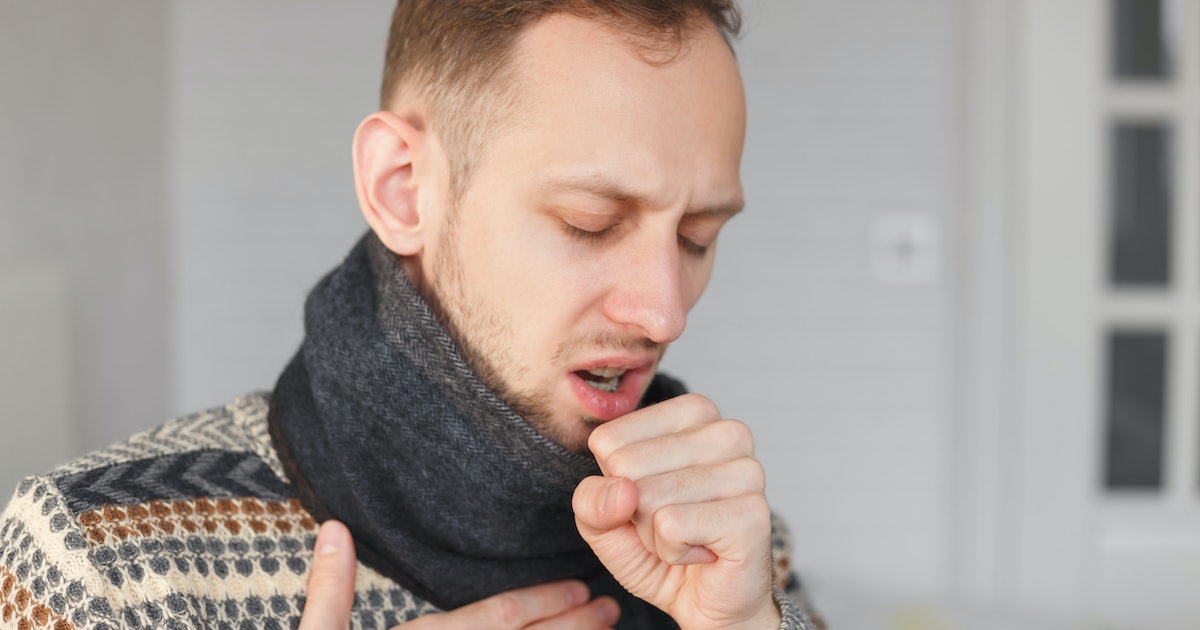
Why Won’t My Cough Go Away? Doctors Explain Why This Symptom Lingers
At the beginning of 2023, the flu hit me hard. Now, weeks later, I’m mostly recovered, but I still have one symptom: A lingering cough that just won’t seem to let up.
It turns out I’m not alone. Sometimes called “postinfectious” or “postviral” cough, it occurs in as many as one in four people recovering from an upper respiratory infection. The ubiquity, however, doesn’t make it any less annoying. Here’s why doctors think coughs often linger following a virus, how to treat them, and when to see a doctor.
What is a postinfectious cough?
Postinfectious coughs often occur after upper respiratory infections, like nose, sinuses, throat, or voicebox (larynx) infections. Diane Pappas, a professor of pediatrics at the University of Virginia School of Medicine, tells Inverse, “Some people will have a postinfectious cough that can last between three and eight weeks.” When the postinfectious cough is in the three to eight window, it’s considered “sub-acute.”
Sub-acute postinfectious coughs are often dry coughs (as in, they’re not producing a lot of mucus), but not always. According to clinical guidelines, the scans will appear normal if a patient with a postinfection cough gets a chest X-ray, as sometimes happens when doctors want to rule out more serious conditions like pneumonia.
What causes a postinfectious cough?
Many common viruses can cause a postinfectious cough. This includes rhinoviruses and adenoviruses, which are responsible for many common colds, as well as influenza viruses, the respiratory syncytial virus (RSV), and SARS-CoV-2, the virus that causes Covid-19.
In some cases, bacterial infections can be the culprit, though this is rarer. One prime example would be pertussis, a.k.a whooping cough. Fortunately, you’re likely vaccinated against it.
Robert Rodriguez, a professor in UCSF’s department of emergency medicine and an emergency physician at San Francisco General Hospital, tells Inverse that postinfectious coughs are, in many cases, the result of residual inflammation from the initial infection.
“The larynx, bronchioles, basically both the upper and lower airway can become inflamed,” he says. “That inflammation can trigger cough receptors or make cough receptors hypersensitive, and it sometimes just takes a long time for that inflammation to die down.”
Pappas agrees that inflammation and hyperresponsiveness are likely culprits, adding that the causes are usually “multifactorial.”
“Excessive mucus secretion with decreased mucus clearance in the upper or lower airway may also contribute to [postinfectious] cough,” she says.
Some people may be more likely to develop a postinfectious cough than others. Rodriguez says people with asthma, COPD, sleep apnea, a history of smoking, and other respiratory vulnerabilities may be especially susceptible to postinfectious coughs. Those same vulnerabilities may also prolong the duration of the postinfectious cough.
How to treat a postinfectious cough with over-the-counter medicine
Your postinfectious cough will likely resolve on its own, but there are things you can do to manage the symptoms and potentially speed up the healing process.
Rodriguez says the primary over-the-counter medications that may help postinfectious cough are the same ones you probably used during your illness: cough suppressants. Whether that’s cough syrup, lozenges, or throat-numbing spray, these don’t treat the inflammation at its source, but they can certainly make living with a postinfectious cough more tolerable.
Gargling with salt water can also help, as can flushing out your sinuses with a Netipot. If you go that route, make sure to follow the FDA guidelines.
Rodriguez says that to deal with the inflammation at its source, a doctor might prescribe inhaled steroids. However, an over-the-counter nasal steroid like those used to treat allergies “work just as well and aren’t nearly as expensive as inhaled steroids,” he says. Nasal steroids can decrease the inflammation in your nose and upper airway.
Rodrigues adds, “A lot of times something will feel like a cough but is actually post nasal drip. Nasal steroids will help with that as well.”
Oral antihistamines may also help reduce inflammation, he says.
Pappas notes that “there is no role for antibiotics” in postinfectious cough treatments. (The exception would be those rare instances in which a bacterial infection, not a virus, is the cause.)
When to see a doctor
If your postinfectious cough hasn’t quelled after eight weeks, make an appointment to see your doctor. They will likely want to ensure no underlying condition is exacerbating or prolonging the cough.
If you have severe chest pains, a fever, or coughing up blood at any time during the postinfectious cough, contact your doctor.
I know firsthand how miserable it is to finally recover from a brutal virus only to have that last symptom cling to you like a leech. But it may help to know that it’s common and very likely to go away on its own. If it doesn’t, definitely let your doctor know.
At the beginning of 2023, the flu hit me hard. Now, weeks later, I’m mostly recovered, but I still have one symptom: A lingering cough that just won’t seem to let up. It turns out I’m not alone. Sometimes called “postinfectious” or “postviral” cough, it occurs in as many as one in four people recovering…
At the beginning of 2023, the flu hit me hard. Now, weeks later, I’m mostly recovered, but I still have one symptom: A lingering cough that just won’t seem to let up. It turns out I’m not alone. Sometimes called “postinfectious” or “postviral” cough, it occurs in as many as one in four people recovering…